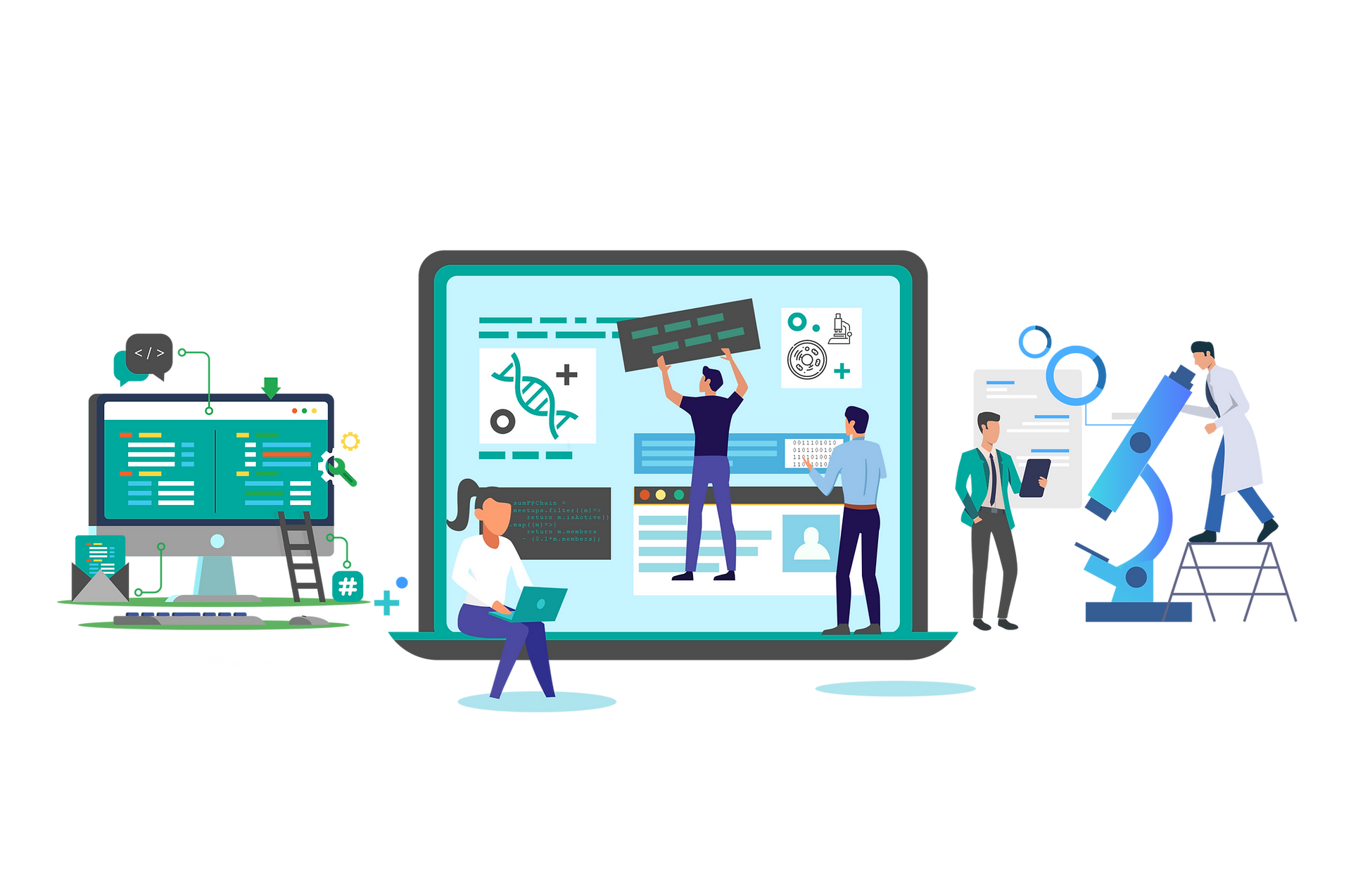

Computational Biology which highly overlaps with Bioinformatics is the field of science where models or algorithms are constructed by using the biological data so the problems of biological systems can be solved and understood. In computational biology, researchers learn and use these models or algorithms of biological systems developed from experimental measures to get to the bottom of the biological problem.
Framing the biological problem into a computational problem might be the most critical task for computational biologists. They have to look at the biological systems from different perspectives and come up with different theories and then integrate them to develop the model or algorithm better than the previous models so the biological system could be comprehended.
Computational Biology Vs Bioinformatics:
Most of the time people assume that Computational Biology and Bioinformatics are the same things. Before completely comprehending the area of Computational biology, one should know the difference between both of them. Their major difference is in their practice.
As mentioned earlier, computational biology revolves around the development of mathematical models, computational algorithms, and statistical evaluations of complex biological data or systems. It mainly focuses on the computational side of the biological problem-solving.
Unlike computational biology, bioinformatics is more about utilizing the biological data and expanding one’s skills to deal with these biological data by database and software development. One more major thing required from a bioinformatician is to manage, visualize, and analyze this biological data so some substantial information can be extracted out from them.
Computational Biology’s Impact:
The development of these models and algorithms and their integration makes this field very diverse and vast. Following are some of the major sub-areas that a computational biologist impact:
-
Comprehending the biological structures and biological systems so their shapes and relationships could be understood and their visual simulation can be developed by using computer science, physics, mathematics, biology, chemistry, and it actually involves high-performance computing & simulations.
-
Understanding the genome level information of cells and organisms such as sequencing the whole genome into data. This opens up doors for sequence homology, personalized drugs (by analyzing the pre-existing genetic patterns) which could be more effective and cheap, developing models for decoding animals and plants genomes & phenomes, etc.
-
Focusing on specific diseases such as cancer and predicting future mutations through models and algorithms.
-
Creating models to analyze the brain data so the neurological system could be comprehended better. A computational biologist’s job is to keep on improving these models so the calculations of these models can speed up.
How to become a Computational Biologist?
To become a computational biologist, one should have skills in statistical genetics, genomes projects, manipulating large data sets, knowledge of algorithm development, scripting in Python/R, Windows/Unix, computer programming, familiar with high volume data sets, next-gen sequencing, problem-solving, and high-performance computing.
Therefore, if you’re working on any biological data projects or if you’re just a beginner and you don’t know how to script in Python/R, you can join BioCode’s Gold or Gem Bioinformatics plans at very affordable prices. You can be an expert in Python’s and R’s scripting, developing algorithms, and analyzing any biological data, by learning from our various useful & informative tutorials on the tools & databases involved in analyzing the biological data.
BioCode provides an interactive platform to learn biological programming in Python & R, computational biology techniques, tools, databases, and biological data analysis in an interactive manner covering both theoretical and practical aspects of the computational biology topics; an interactive platform where fun meets work and you learn at your own pace, without being time-constrained.
To join our Gold or Gem Bioinformatics plans, visit BioCode and enroll yourself to develop your skills in computational biology.

How to avail our Computational Biology’s services?
More excitedly, BioCode has brought a platform where bioinformaticians or students can provide their expertise to help others. BioinfoLytics is a platform that provides computational biology and bioinformatics services so we can help you with your research or your project in a very efficient and supportive manner.
The goal of BioinfoLytics is to provide you with the computational biology and bioinformatics services such as sequence alignment & analysis, genome analysis, bioinformatics scripting & software development, molecular docking, phylogenetic & phylogenomic analysis, protein structure prediction, functional analysis, biological database analysis, and biological data analysis & visualization And to provide you with a well-structured & faster analysis than the market in very affordable prices.
If you couldn't find the service/s you were looking for your project or research in our aforementioned services, it's all right because you can request for a custom analysis/service according to your need and your research/project.
All you have to do is visit BioinfoLytics, submit your project, we'll confirm your order, you pay, and we'll work on your project very efficiently within the specific deadline. Once your project is ready, you'll be provided with a very manageable and comprehensive report which you can download through the high-end server so you can further work on your research. You will be provided with the chance of a maximum of 3 revisions and even after that if you are not satisfied with the work/analysis, we guarantee you a refund if you would request it within the next 7 days.

